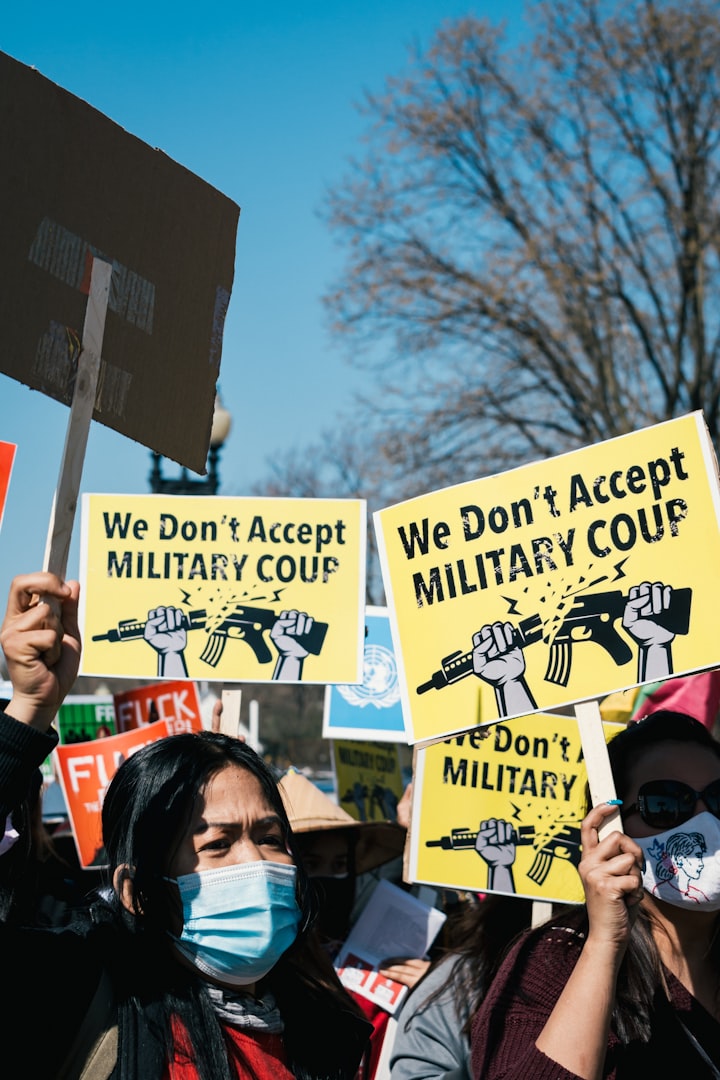Unraveling the Complexities of Coup d'État in West Africa
The recent Coups happenings and what should be done

Coup d'État, a French term meaning "blow of state," refers to the sudden overthrow of a government by a faction within the existing power structure, typically carried out by military forces or other dissident groups. This phenomenon has been a recurrent occurrence throughout history and continues to shape the political landscape of various regions. In recent years, West Africa has witnessed its fair share of coup d'État, a phenomenon deeply embedded in the region's complex historical, social, and political dynamics.
The history of West Africa is marked by a series of colonial invasions, post-independence power struggles, and ethnic tensions. Many West African countries gained independence in the mid-20th century, transitioning from colonial rule to self-governance. However, the aftermath of decolonization brought about challenges related to political stability, economic development, and nation-building.
Several countries in the region experienced coups shortly after gaining independence. These events were often driven by a mix of factors, including power struggles among elite factions, weak governance structures, socioeconomic disparities, and external influences. In many cases, the military saw itself as a guardian of stability, leading to a recurring pattern of military intervention in politics.
In recent decades, West Africa has made significant strides towards democratic governance. However, the region still grapples with deeply rooted issues, including corruption, poverty, and unequal distribution of resources. These challenges have created fertile ground for political unrest and coup attempts.
One of the key factors contributing to coup d'État in West Africa is the fragility of democratic institutions. Despite the establishment of multi-party systems and periodic elections, many governments have struggled to provide essential services and address the needs of their populations. This has led to public disillusionment and discontent, paving the way for dissenting factions, often within the military, to exploit the situation and seize power.
Economic disparities are another driving force behind coup attempts. West Africa is home to immense natural resources, yet the benefits of these resources are often concentrated in the hands of a few. Rampant corruption further exacerbates this inequality, leading to public anger and frustration. When citizens perceive that their government is not effectively managing resources for the collective welfare, support for a coup can grow.
External factors also play a role in the coup dynamics of West Africa. The global geopolitical landscape, economic interests, and regional power struggles can influence the stability of individual countries. Additionally, neighboring countries' political situations can have spill-over effects, impacting the fragile stability of nearby states.
Case Studies:
Mali (2020):
Mali, a country with a history of coups, experienced another one in 2020. The military deposed President Ibrahim Boubacar Keïta amidst widespread protests over alleged electoral fraud, corruption, and economic hardships. The coup highlighted the frustrations of the population with their government's failure to address their concerns effectively.
Guinea (2021):
In Guinea, a coup took place in 2021 led by the military, ousting President Alpha Condé. Condé's bid for a controversial third term in office fueled public anger, and his government's alleged authoritarian tendencies and human rights abuses added to the discontent. The military justified their actions as a response to the deteriorating democratic and socio-economic conditions.
Coup d'État remains a recurring feature of West Africa's political landscape, fueled by a combination of historical legacies, socio-economic challenges, weak democratic institutions, and external influences. To break this cycle, it is crucial for West African nations to address root causes such as corruption, unequal resource distribution, and the lack of effective governance. Strengthening democratic institutions, promoting inclusive economic development, and ensuring transparent leadership are essential steps in preventing future coup attempts.
International actors also have a role to play by supporting efforts to build robust democratic structures, promoting economic development, and mediating conflicts. The international community's engagement can help create an environment where political change occurs through peaceful and democratic means rather than through violent upheavals.
In summary, the phenomenon of coup d'État in West Africa reflects a complex interplay of historical, social, economic, and political factors. While the region has made progress in embracing democratic governance, addressing deep-seated challenges is essential to preventing future coup attempts and fostering lasting stability.





Comments
There are no comments for this story
Be the first to respond and start the conversation.